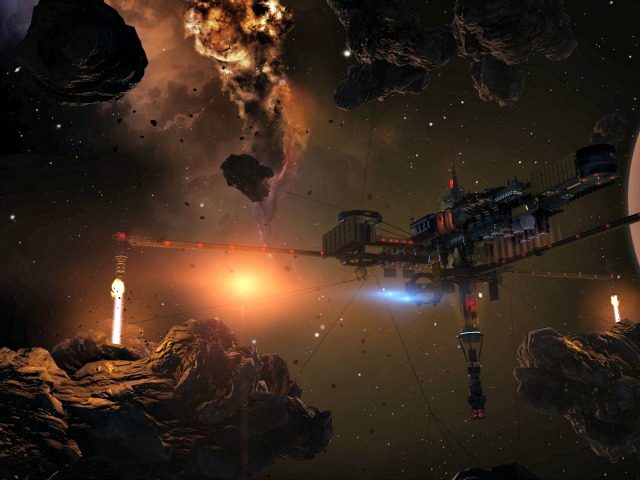The future of the mining industry isn’t below ground — it’s asteroids in the reaches of space.
The world has begun to look beyond Earth itself for a frontier boom that will make the madcap California gold rush of 1849 seem like little more than a brief economic diversion.
In 2009, The Review of U.S. Human Spaceflight Plans Committee concluded that we must “chart a path for human expansion into the solar system” in “seeking a human spaceflight program worthy of a great nation.” At the time, they had projected a $99 billion dollar investment to that end by 2019. Recent developments suggest that even that sum is little more than a drop in the bucket compared to the potential value floating in the immediate vicinity of our planet.
Just outside our atmosphere is a single 90-foot-wide asteroid hosting about $50 billion in platinum. It’s one of the virtually innumerable examples of rich but untapped resources, floating just beyond our grasp. It’s so close, yet so far. Right now, it takes a ludicrous amount of fuel just to carry the fuel that we’d use to return safely home — much less the prohibitive amounts that would be required for any major mining operation.
To alleviate this problem, Canadian company Deltion Innovations wants to use the asteroids themselves to provide that fuel. The company, which is designing tools and equipment specifically for the challenges of space mining, believes that it can use electrolysis to break down the copious amounts of water frozen on asteroids into its base components of hydrogen and oxygen, and use that in the creation of fuel that wouldn’t need to be hauled up when breaking Earth’s gravity. If successful, the practical range of operations within our solar system would explode.
President Barack Obama ensured that U.S. mining interests would have a strong position from which to launch such harvesting operations when he signed the U.S. Commercial Space Launch Competitiveness Act, giving them until 2023 before they would be subject to regulation, and thus become bound by the international Outer Space Treaty of 1967.
So far, however, it’s the tiny European country of Luxembourg that’s made the greatest strides toward a frontier that is quite literally caked with untold billions — even trillions — of unclaimed wealth. American companies like Planetary Resources and Deep Space Industries are migrating to Luxembourg at the promise of $227 million in government funding.
It’s a whole new space race, with the future of the world economy on the line.
Follow Nate Church @Get2Church on Twitter for the latest news in gaming and technology, and snarky opinions on both.

COMMENTS
Please let us know if you're having issues with commenting.